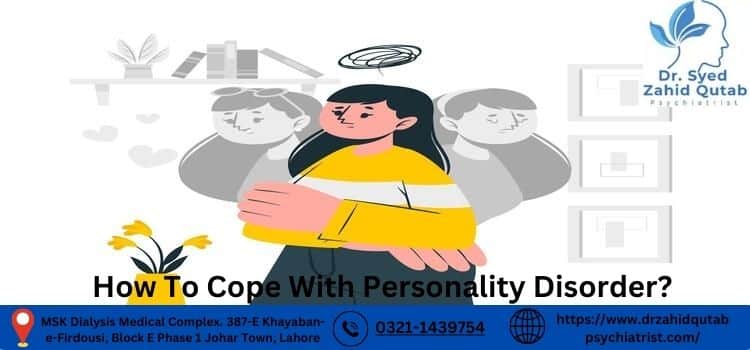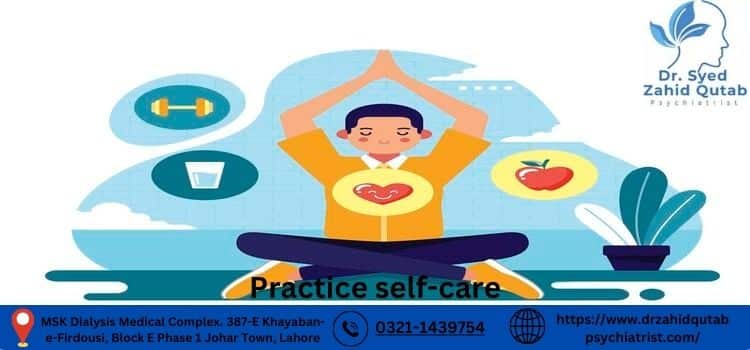Coping with a personality disorder can be a difficult experience for anyone, but by understanding the condition and effectively managing it, it is possible to find relief. In this guide, we’ll explore how to cope with personality disorder.
Whether you’re newly diagnosed or have been working on recovery for years, these tips will help you make progress within a manageable time frame.
So let’s get started; read on to learn more!
How To Cope With Personality Disorder?

Personality Disorder is a mental health condition that affects the way individuals think, feel, and behave. It can vary in severity and may include traits such as impulsiveness, emotional instability, difficulty managing relationships, and distorted self-image. These characteristics can significantly impact an individual’s life, making it challenging to navigate daily tasks and maintain healthy relationships.
Coping Strategies for Personality Disorder
Coping with Personality Disorder can seem overwhelming, but there are various strategies you can try to manage your symptoms and improve your overall well-being. Here are some techniques to consider:
1. Mindfulness and relaxation techniques
Mindfulness practices, such as meditation and deep breathing exercises, can help you stay present in the moment and reduce feelings of stress and anxiety. Relaxation techniques like yoga or tai chi can also be beneficial in managing difficult emotions and promoting a sense of inner peace.
2. Seek social support
Having a strong support system can make a significant difference in managing Personality Disorder symptoms. Reach out to friends, family, or seek support from online communities where you can connect with others who understand what you are going through. It’s also crucial to communicate openly and honestly with your loved ones about your condition and what they can do to support you.
3. Practice self-care

Taking care of yourself is crucial in managing any mental health condition. Make sure to prioritize your physical and emotional needs by getting enough sleep, eating well, and engaging in activities that bring you joy and relaxation. It’s also essential to set boundaries and say no when necessary to avoid becoming overwhelmed or burned out.
4. Attend therapy
Therapy is an essential component of managing Personality Disorder effectively. A therapist can help you understand your thoughts and behaviors, develop coping strategies, and work through any underlying issues that may be contributing to your symptoms. Cognitive-behavioral therapy (CBT) and dialectical behavior therapy (DBT) are two types of therapy that have shown effectiveness in treating Personality Disorder.
5. Educate yourself
Learning more about your condition can help you understand and manage your symptoms better. There are many online resources, support groups, and books available that provide valuable information and insights into living with Personality Disorder. It’s also beneficial to educate those around you, such as friends and family, so they can offer appropriate support and understanding.
Seek Professional Help
If you suspect that you may have Personality Disorder or are struggling to cope with your symptoms, it’s essential to seek professional help. A mental health professional can provide a proper diagnosis and develop an individualized treatment plan that best suits your needs. Remember, seeking help is a sign of strength, not weakness. With the right support and coping strategies, you can learn to manage your condition and lead a fulfilling life.
Causes of Personality Disorder
There is no single known cause for Personality Disorder. However, research indicates that it may be a combination of genetic, environmental, and social factors. Some people may have a predisposition to develop this condition due to their genes or early childhood experiences. Additionally, traumatic events, such as abuse or neglect, can also contribute to the development of Personality Disorder.
It’s important to remember that having a predisposition or experiencing traumatic events does not necessarily mean you will develop a Personality Disorder. Many individuals with these factors may never develop this condition.
Symptoms of Personality Disorder
The symptoms of Personality Disorder can be diverse, but some common ones include:
- Intense fear of abandonment
- Impulsive behavior or self-destructive tendencies
- Difficulty controlling emotions, such as anger, anxiety, or depression
- Low self-esteem and distorted self-image
- Difficulty establishing and maintaining healthy relationships
- Feelings of emptiness or loneliness
If you experience any of these symptoms, it’s crucial to seek professional help for an accurate diagnosis and treatment plan. A mental health professional can work with you to develop a personalized coping strategy that takes into consideration your specific needs and challenges.
Conclusion
Living with Personality Disorder can be challenging, but it’s essential to know that there is hope. Learn How To Cope With Personality Disorder By understanding your condition, seeking appropriate support, and implementing effective coping strategies, you can learn to manage your symptoms and improve your quality of life.
With persistence and perseverance, you can overcome the challenges of Personality Disorder and live a meaningful life. So don’t give up- seek help today and take the first step toward healing!
FAQs
Some of the frequently asked questions by people are mentioned below:
Can someone with personality disorder get better?
Yes, with proper treatment and support, people with personality disorders can improve their symptoms and lead a fulfilling life. It’s essential to seek help from a mental health professional who can provide an accurate diagnosis and develop an individualized treatment plan.
What is the hardest personality disorder to treat?
There is no one “hardest” personality disorder to treat as each individual’s experience and symptoms may vary. However, some believe that Borderline Personality Disorder can be more challenging to manage due to its intense emotional reactions and impulsive behaviors.
Can you live with a personality disorder?
Yes, with appropriate treatment and coping strategies, it is possible to live a fulfilling life with a personality disorder. It’s crucial to seek help from a mental health professional and develop healthy coping mechanisms to manage symptom
